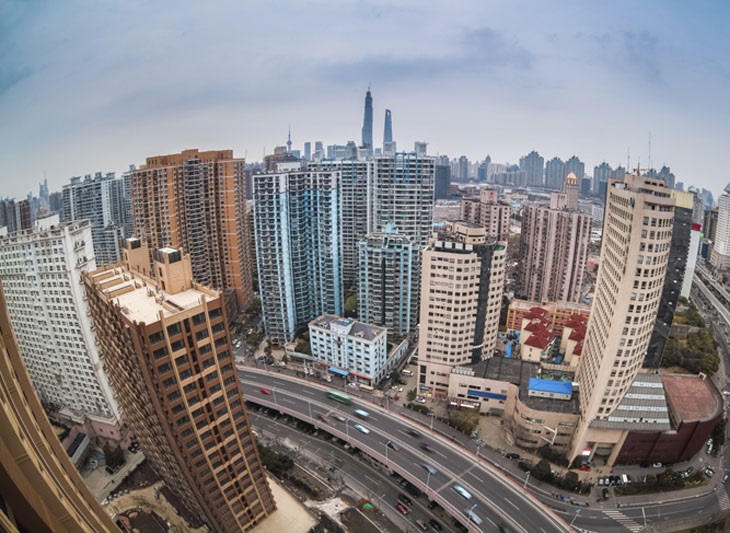Asia-Pacific urbanization partnership to promote sustainable cities

Recognizing the critical role of urban economies, APEC is working toward a concerted approach on strategic urban planning to create sustainable cities. Policymakers explored a potential region-wide cooperative initiative at an APEC Policy Dialogue on Urbanization in Beijing on Tuesday.
“Urban inefficiencies hinder economic growth and sustainability,” said Tan Jian, APEC Senior Official from China. “Backlogs in physical infrastructure, poor urban planning and management, and environmental impacts are affecting both the productivity and livability of cities in the region.”
“Responding effectively requires a paradigm shift in the urbanization process,” continued Tan. “For the millions of people who are involved in urbanization, it is not only a change of house and jobs, but also a change of minds, lifestyle and economic model. It's a new and people-oriented process, empowering people with all-round development. APEC members, both developed and developing, enjoy great potential to cooperate in this regard.”
With over half of the world’s megacities in the APEC region, urban areas are increasingly the focus of global innovation. Driven by the liberalization of trade, capital and labor markets, urbanization has boosted productivity gains and advanced reforms in the Asia-Pacific. Cities account for 70-80 per cent of GDP and over 60 per cent of APEC’s population. With around 1.8 billion people living in Asia-Pacific cities today, urban dwellers are expected to rise to 2.4 billion or 77 per cent of the region’s population by 2050.
However, these rapidly transforming cities face critical challenges from infrastructure bottlenecks and inadequate housing to environmental pollution and poverty. Urban areas globally consume 85 per cent of the world’s energy and account for 75 per cent of global carbon dioxide emissions. Over 950 million city dwellers in the world are poor.
Infrastructure delivery from housing to sewage treatment is key to reducing poverty and improving living standards, particularly in cities of developing economies. Moreover, urban infrastructure also plays an important logistics role in the regional economy.
“Cities are not just about the city—they also provide key logistics corridors that connect the hinterland with the larger economy, allowing inland communities to transport raw materials or products,” explained Dr Denis Hew, Director of the APEC Policy Support Unit. “The effectiveness of these urban infrastructure linkages should also be an important dimension in strategic urban planning.”
Globalization, free trade agreements, improved communications and exchanges are also leading to a more borderless system of engagement between cities in the region. Regional planning between cities such as cross-border logistics corridors to promote trade should also be a focus for APEC.
These are the preliminary findings of a forthcoming APEC Policy Support Unit report on urbanization policy, which examines some of the cross-border corridors in the region, including Seattle-Vancouver and Bangkok-Ho Chi Minh City. The report highlights key priorities for building a sustainable city, including fostering innovation; enabling cities to plan, finance and build strategic infrastructure appropriate for their industries; focusing on safety, social inclusiveness and environmental objectives; and building transparent, accountable and collaborative urban governance structures.
A new Asia-Pacific Partnership for Urbanization and Sustainable City Development could help APEC promote these priorities to create more sustainable, livable and innovative cities.
“The Partnership could mainstream urbanization in APEC’s work, and encourage a structured mechanism to promote city-to-city cooperation projects such as low carbon model towns, eco-cities, smart cities, and a network of sustainable APEC model cities to offer best practices in urban planning,” said Yuhua Zhang, Analyst at the APEC Policy Support Unit.
“Other possible aspects include establishing a sub-fund based on voluntary contributions under APEC to support urbanization-related studies and projects, incorporating innovative development in local urban planning and government, as well as facilitating investment in secondary, and smaller cities,” added Zhang.
The report by the APEC Policy Support Unit is expected to be published on APEC Secretariat website at the end of September.
# # #
For more details or to arrange possible media interviews, please contact:
Jennifer Juo +65 9721-8660 at [email protected]
Michael Chapnick +65 9647 4847 at [email protected]
Additional details about APEC meetings, events, projects and publications can be found on www.apec.org. You can also follow APEC on Twitter, Facebook and LinkedIn.

